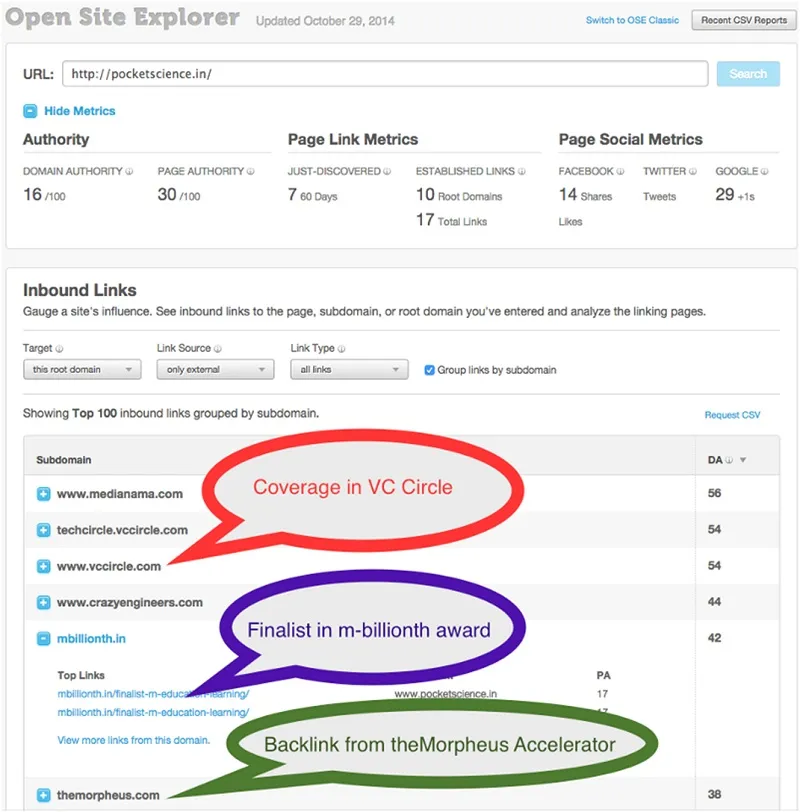3 hacks to know your competitor better
When someone conceives an idea, he tends to believe that no one else in this world is working on the same. At least I believed that before starting my first startup. The possibility is that someone -somewhere is working on exactly the same idea, with some differences in execution and commitment.
Some people work on the business idea till the hangover on Saturday night, some extend their work till weekend, some take it seriously and work for months, and some happen to release beta version but very few take the idea to the sky.
At which phase of a startup should we start analyzing competition? Don’t you think it is important to do this analysis even before planning and execution?
But how to get internal details of other’s business? Tough job, isn’t it?

We made a few mistakes in the early days of our first startup but gradually learned how to analyze competition — in a very easy way.
We found that there are three types of competitors in the market:
- Sprouts
Companies which are at a very early stage, and are drafting business plans, building the right team for execution, arranging funds and writing the first piece of code. There is no need to fear these companies.
- Startups
These are companies that passed out the first test. They might have released the beta version, graduated from incubator or accelerator, have had early customer traction or even won some awards for their awesome work.
These companies are not only competitors but they also validated market and product need. If there are couple of startups working in the same domain then something great must be happening in the market. A few examples of exciting markets are e-commerce, travel, product discovery platforms, data analytics and mobile.
- Big companies
It can be bad news if big corporates are selling similar or exact product. Big companies have an inherent advantage of capital access, strong marketing capabilities, ability to put the right resources for product development and networking with potential partners and media houses.
I would be afraid to compete with big companies unless I have figured out something which is really important for the end customer. Even a small thing can become a big competitive advantage where you can stand far better than competitors.
For example, what Housing.com did with real estate which Magicbricks ignored and Ola cabs did with taxi bookings which Meru cabs ignored.
Let me start with competition analysis that I have learned so far.
Step 1 ) Online Analysis
- Start with Google
As you can guess, easiest step is to start searching on Google. Search with different keywords on Google like you are real customer and start preparing list of companies who are providing it or similar product or solutions.
But a lot of potential customers will not appear on first pages of Google, may be because of poor keywords used in search OR competitor is not focused on SEO (they might have other strong channels of customer acquisition).
- Startup Media Platforms
Other way of building a strong list of competitors is from startup story platforms. Indian startups are regularly covered by YourStory, NextBigWhat and global startups can be found on TechCrunch, Mashable and ReadWrite. These are just a few examples. You can build a list from other similar platforms. In this process you will build more knowledge about competitive space and positioning of your competitors.
- Inbound link to competitor’s website
Use this list to explore more about the competition. It is very easy to find inbound links to a competitor’s website with the help of tools like Open Site Explorer. Try to figure out as much information as you can.

This will reveal a lot of important information in a few clicks — recent media coverage, awards and other important backlinks to competitor’s website. Exploring those links will unfold the growth story of the competitor. (Same information can later be helpful in building own backlinks for SEO).
Step 2) Insider Information
Do you feel we now have sufficient information about the competition? Not really.
Till now we just figured out how many competitors are there in the market and what they are doing — we have a clue about how they are doing but almost no information about their future plans.
- Interviewing Competitor’s Employees
Getting insider information from competitor’s employee — sounds unethical? It’s another source of authentic information, you can skip it if you don’t like it.
- Access to Investor Presentation
Startups prepare information rich presentations for investors and customers. Some presentations can be found in the public domain like SlideShare. I advise you to spend some time on searching for such material.
Companies like Buffer, make their investor pitch deck available to public. Other places to look for investor presentations are PitchEnvy and Best Pitch Deck.
- Product Login / Training
Try out the competitor’s product and go through their training material. We were building SaaS based B2B product in a previous startup. We went through youtube trainings (which was easy) and managed to get product logins of two competitors (which is usually hard in B2B). You never know what you can find from competitor’s product.
Step 3) Stay Updated
With two steps we can have enough understanding about competitors and their internal business plans. Startup environment is very dynamic and we should stay updated with latest happenings.
- Setting Google Alerts
This is one of the best way of getting alerts about your industry and key competitors. Google provides the option of creating alerts based on keywords and alert frequency is configurable.
- Social Media
Subscribe to competitor’s social media, blogs and youtube channel. You will be the first to know about their product announcements, latest features and other news.
I hope I was able to provide some useful information in this article. I would love to learn more about competition analysis, please share you learnings.







